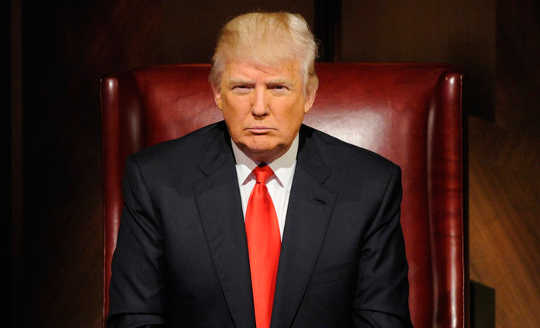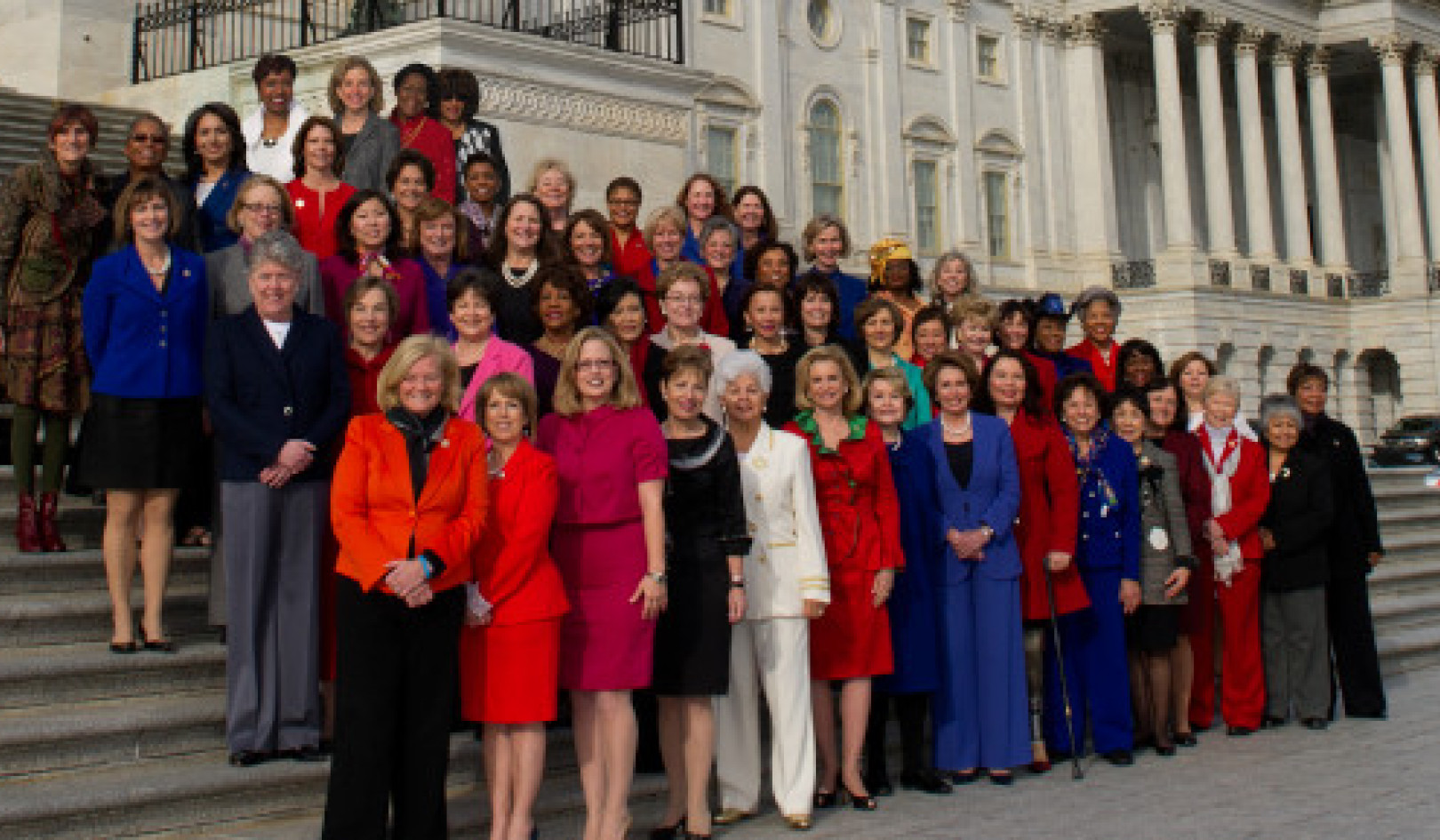
Optimists are hoping for a Trump makeover. They cling to his brief victory remarks suggesting that he wants to be the “president of all the people.” In his 60 Minutes interview following the election Trump said that the protestors were out in the streets because “they do not know me.” They recall his statement some months ago that he had to say outlandish things in order to get greater media attention and reach more people than his Republican primary competitors.
Character and personality are not prone to change in most people. Especially in the case of Trump, who sees these campaign tactics as reasons for his “successes.” However, the assumption to exalted, higher offices of public trust and power sometimes brings out the better angels.
So far, though, the signs are foreboding. Trump values loyalty, and people like Rudy Giuliani and Newt Gingrich stuck with him at his lowest points earlier this year. Trump knows very little about the awesome job given him by that dead hand from the past – the Electoral College – which has once again caused a plurality of voters to see their chosen candidate lose (Even Trump acknowledged its unfairness on CBS’s Sixty Minutes after the election).
Lack of knowhow coupled with blind loyalty brings Trump to rely heavily on these old hands behind the worsening corporate state and military belligerence.
His transition appointments are delighting the corporatists. The man chosen to oversee the changes in the Environmental Protection Agency denies that climate change is man-made and scowls at regulation of harmful pollutants. Trump has opened the door to the big oil and gas lobbyists to control the Department of Energy and the Department of the Interior. Wall Streeters are smacking their lips over Trump cavorting with opponents of regulating that giant gambling casino.
His military advisors do not come from the ranks of prudent retired officials who see perpetual war for what it is – a mechanism for national insecurity, authoritarianism and profits for the military-industrial complex that President Dwight Eisenhower warned us about in his 1961 farewell address. To the contrary, many of Trump’s military advisers have been quick to embrace an Empire mentality and its warfare state.
One can imagine how a major stateless terrorist attack on the U.S. during his administration could provoke Trump into a heavy-handed retaliation with dangerous and unforeseen consequences. This is exactly what these adversaries want him to do in order to further spread their propaganda campaign against the U.S. Meanwhile, our civil liberties, and the domestic necessities of the people are shoved aside.
His first two major assistants – Chief of Staff Reince Priebus and Chief Strategist Steve Bannon – have called for corporate tax reductions and elimination of the estate tax on the rich (the only ones who pay it). Despite the “small government” façade, they are not likely to challenge the deficit-swelling combination of a larger military budget, decreased revenue and continuation of the bailouts, subsidies and giveaways known as crony capitalism that have enriched Trump and his plutocratic allies over the years.
Intrigue and internal fighting inside the White House and top Cabinet levels are likely if Trump insists on giving powerful roles to his three children and son-in-law (albeit without pay). Nepotism and conflicts of interest are acidic cocktails and undermine the integrity and transparency of public office.
Then there is the explosive crackdown on immigrants – many of whom benefit millions of Americans by working in low-wage jobs – that can produce daily turmoil, not to mention the exorbitant human cost of breaking up families in communities across the country.
In past Republican Party electoral victories, there was always a modicum of checks and balances to slow their plutocratic greed and power grabs. As of January 21, 2017 the Republican Party controls the Executive Branch, the Congress, the Supreme Court and most likely 33 governorships and 32 state legislatures. The anti-democratic Electoral College is the cause this November of giving the GOP control over the White House and, by extension, the Supreme Court (see nationalpopularvote.com).
Other than an unlikely vigorous and fearless free press, not just in Washington but also back in the localities, or a self-destructive Trump implosion, the redeeming power of the people can only come from the grass roots.
Our country is in an extraordinarily high-risk condition, given who possesses the reins of power. Self-described conservatives and liberals can curb that power if they form alliances back in the Congressional districts around the major initiatives on which they agree (See my book Unstoppable: The Emerging Left/Right Alliance to Dismantle the Corporate State). Such alliances have occurred with success in the past.
With the power brokers employing their divide-and-rule tactics, such potent political alliances will require citizen action and adequate funding in all Congressional districts with focused and sustained intensity on their Senators and Representatives. Congress, with only 535 lawmakers, is the most accessible of the checks and balances reachable by the people back home.
How many enlightened billionaires, serious citizen-patriots and advocates for transforming elections and governance step up?
Recommended book:
The Seventeen Traditions: Lessons from an American Childhood
by Ralph Nader.
 Ralph Nader looks back at his small-town Connecticut childhood and the traditions and values that shaped his progressive worldview. At once eye-opening, thought-provoking, and surprisingly fresh and moving, The Seventeen Traditions is a celebration of uniquely American ethics certain to appeal to fans of Mitch Albom, Tim Russert, and Anna Quindlen — an unexpected and most welcome gift from this fearlessly committed reformer and outspoken critic of corruption in government and society. In a time of widespread national dissatisfaction and disillusionment that has given rise to new dissent characterized by the Occupy Wall Street movement, the liberal icon shows us how every American can learn from The Seventeen Traditions and, by embracing them, help bring about meaningful and necessary change.
Ralph Nader looks back at his small-town Connecticut childhood and the traditions and values that shaped his progressive worldview. At once eye-opening, thought-provoking, and surprisingly fresh and moving, The Seventeen Traditions is a celebration of uniquely American ethics certain to appeal to fans of Mitch Albom, Tim Russert, and Anna Quindlen — an unexpected and most welcome gift from this fearlessly committed reformer and outspoken critic of corruption in government and society. In a time of widespread national dissatisfaction and disillusionment that has given rise to new dissent characterized by the Occupy Wall Street movement, the liberal icon shows us how every American can learn from The Seventeen Traditions and, by embracing them, help bring about meaningful and necessary change.
Click here for more info and/or to order this book.
About the Author
 Ralph Nader was named by the Atlantic as one of the 100 most influential figures in American history, one of only four living people to be so honored. He is a consumer advocate, lawyer, and author. In his career as consumer advocate he founded many organizations including the Center for Study of Responsive Law, the Public Interest Research Group (PIRG), the Center for Auto Safety, Public Citizen, Clean Water Action Project, the Disability Rights Center, the Pension Rights Center, the Project for Corporate Responsibility and The Multinational Monitor (a monthly magazine). His groups have made an impact on tax reform, atomic power regulation, the tobacco industry, clean air and water, food safety, access to health care, civil rights, congressional ethics, and much more. http://nader.org/
Ralph Nader was named by the Atlantic as one of the 100 most influential figures in American history, one of only four living people to be so honored. He is a consumer advocate, lawyer, and author. In his career as consumer advocate he founded many organizations including the Center for Study of Responsive Law, the Public Interest Research Group (PIRG), the Center for Auto Safety, Public Citizen, Clean Water Action Project, the Disability Rights Center, the Pension Rights Center, the Project for Corporate Responsibility and The Multinational Monitor (a monthly magazine). His groups have made an impact on tax reform, atomic power regulation, the tobacco industry, clean air and water, food safety, access to health care, civil rights, congressional ethics, and much more. http://nader.org/





























